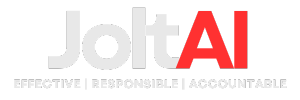How the ISO and IEC are developing international standards for the responsible adoption of artificial intelligence.
The ISO/IEC SC 42 committee plays a key role in developing international standards to support the responsible adoption of artificial intelligence (AI) technologies. With an ecosystem-based approach, the committee considers regulatory, business, societal, and ethical perspectives, fostering collaboration among a diverse global network of stakeholders, including developing countries and gender-inclusive leadership.
SC 42’s focus is on creating trustworthy AI standards that support innovation and align with industry best practices. It has published foundational standards for AI concepts, terminology, governance, and big data, with ongoing work in AI data quality, bias mitigation, explainability, transparency, risk management, and functional safety. The committee also leverages existing IT standards, adapting them for AI-specific needs.
Collaborating extensively with other ISO/IEC committees, SC 42 addresses AI governance, testing, health informatics, natural language processing, and industrial automation. Sustainability is a priority, with work supporting 12 of the 17 UN Sustainable Development Goals (SDGs). The committee incorporates ethical and societal considerations, publishing guidance on AI ethics and developing standards to address societal concerns.
SC 42’s notable achievements include ISO/IEC 42001, a management system standard enabling organizations to responsibly develop and manage AI systems, with third-party certification for added assurance. Future standards will focus on AI impact assessment and certification.
By overcoming barriers to AI adoption and addressing ethical, societal, and technical concerns, SC 42 facilitates the global, responsible integration of AI technologies, ensuring they deliver societal benefits and align with diverse stakeholder needs




Leave a Reply